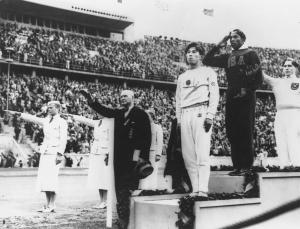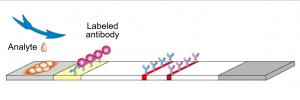A number of remarkable incidents happened in South Korea last year and they are still going on. From those political tidings, many people are disappointed and are tired of the Korean government and Korean politicians. People may think that it was so harsh and don’t want to go through it any more. However, there are some people who have overcome more than what we have experienced, the seniors. They went through wars, Japanese occupation, military dictatorship and so on. Thinking of Korean’s swirling political history, seniors of our society might think that the series of affairs these days are just a tiny dust particle throughout their lives. So let's go on a journey to the old days. The first interviewee for “People” in this first issue of Tidings this year is a senior who has a special relation to this year. Here, Tidings introduces to our readers Jeongsuk Lee, who had his 80th birthday last month.
HT : Glad to meet you, Jeongsuk. I’m so pleased to introduce you to our readers. A short introduction will help peak readers’ interests.
JS : Nice to meet you, my name is Jeongsuk Lee. I’m also happy to meet many students through these pages. I’ve lived in Geumsan throughout my life. I was also a student eager to study a long time ago. But now, I am a grandfather of 6 grandchildren. One of them is interviewing me now. (haha) I hope you enjoy my stories.
HT : Let’s start from your first school story. I heard there were just a few people who went to elementary school in those days.
JS : Yes, that’s correct. At that time, parents were not interested in the education of their children. They preferred their children to work rather than study in school. However, I eagerly wished to be a student, and it was at the age of 8 when I took an entrance examination to go to elementary school. At that time, Korea was under Japanese occupation, so we had to take a test to enter school. Five kids took the test in Namsan Valley, which is my hometown, but all of them failed except for me.
HT : I’m curious, what questions were on the test? You all were just kids.
JS : Usually, simple arithmetic, hiragana and katakana (the Japanese alphabet) were on the test. I studied those things on my own because I really wanted to go to school. Finally, I entered Joongang(which means ‘central’ in Korean) Elementary School. There was another elementary school in the town, Geumsan Elementary School. It was a school only for Japanese kids while Joongang Elementary School was for Korean kids. In Joongang Elementary School, there were so many students inside the classroom, so school ran morning classes and afternoon classes. I was in the afternoon class. It was good for me because I could help my parents in the morning and study in the afternoon.
HT : What did you learn from school? Any episode you remember?
JS : We learned Japanese, being still under Japanese occupation. When I became a second year student, we received a pair of rubber shoes through rations. Some students received sneakers. It was decided by drawing lots. We envied the lucky ones who got sneakers.
HT : So were you ever lucky at school?
JS : Yes, I did. On school field day, I ran a race and won the first prize. A notebook was given to the winner. Second and third finishers received pencils. I liked to play kickball so I played in Joongang Elementary School. However, when I was 10 years old, Korea was liberated from Japan's colonial rule and Geumsan Elementary School became vacant as the Japanese left. As a result, afternoon class students including me moved to Geumsan Elementary School. I am the second graduate of Geumsan Elementary School.
HT : The Korean War happened in your adolescence, didn't it?
JS : After graduation, the Korean War broke out. It was time for me to go to middle school after my elementary school graduation, but the war began and I had to work for my family. One day, the North Korean Army came down to my town and they killed every cow and dog in the village for food. My family also had a cow. So to not be robbed by the North Korean Army, I led the cow to the riverside and hide with it under a bridge. While I was hiding there, soldiers and armored vehicles were roaring above the bridge. I waited until dawn, led the cow to a nearby valley through the dark, and stayed there a few days with the cow. After the North Korean Army left my town, I came back to my village with the cow.
HT : How were your middle school days.
JS : My parents didn’t allow me to go to school and had me feed our cows. I eagerly hoped to wear a school uniform. Fortunately, there were two middle school students in my neighborhood and they helped me. Eventually I had a chance to go to Geumsan East Middle School, by making a fake transfer certificate. In the second year, I joined a school band and played trombone. Why did I choose to play trombone? It’s long and big and made me a cool guy. (haha)
HT : What music did you play, do you remember?
JS : I’m not sure, but we practiced the school song and Arirang (Korean traditional song) for a parade. As for the parade, it was on August 15th when we hold the National Liberation Day Celebrations. Every school has no class on this day. All the students came out and marched down the street, blowing horns. I was the battalion commander of this street parade in my last year of middle school. Wearing an armband, I led the students at the very front. Among several middle schools, we had a fierce battle to decide who will be the first. That was the issue.
HT : Wow, it sounds very exciting. National Liberation Day is still a school holiday, but students don’t actually celebrate it with a parade. Was it a happy end to your school life?
JS : Well, once I graduated middle school I wanted to go to Seorabul High School of the Arts (Seorabul High School now) because I love music. I went to my friend’s house in Seoul and spent several days preparing to take an entrance exam. By the way, I got a phone call from my home that my grandfather died. I had to go back to my house, so I couldn’t take the exam. After this event, I gave up my attempt to enter high school because of the high admission fee. However, a teacher who was always nice to me told me that he would pay the admission fee and asked, “So why don’t you take a test?” In fact, he had already applied the admission for me. I felt gratitude in my heart and I could study for a year.
HT : Only a year? What happened next?
JS : I still had to earn money for tuition by myself, as my parents didn’t want me to go to school. My father was dead, my older brother left, so my mother and I worked hard to feed the family. When it was market day, I went out to the market and sold ginseng to feed my family. So I told my teacher that I couldn’t come to school on market days because I should feed my family. He allowed me to be absent on market days. But over time, I got tired of working, I wanted to make a lot of money.
HT : So you attempted to smuggle yourself into Japan.
JS : Yes, I thought I could make a fortune if I went to Japan and learned skills under a craftsman. For that reason, after a year of high school I went on a ship leaving for Osaka. I had discussed this with my uncle in Osaka and contacted someone who helped stowaways beforehand. Finally, I got on a ship. It was a few days voyage. However, the weather had been getting worse and we met a violent storm, and the ship was damaged. We barely arrived at Daemado (Tsusima island). On the island, I spent several days hidden and waited for my uncle’s contact, but I couldn’t hold-out until he contacted me. Therefore, I gave myself up to the police. They sent me to Omura Prison Camp where I stayed 5 months as an illegal immigrant.
HT : How was prison life?
JS : Well, I was stripped of my clothes and they gave me a prison uniform. Ten people shared a room, 10 blankets were in a row. A food truck came at certain times and we shared meals. But they didn’t force us to work as you might think. It was after Korean independence. Something that impressed me was that there were high wire entanglements to separate North and South Korean detainees. People who are heading North or South lived in different areas. There were some people who tried to climb over the boundaries in prison camp. The people from the North wanted to go South, and the people from the South wanted to go North. It has been a long time, but there is still a border between North and South Korea.
HT : How did you escape then?
JS : They contacted my uncle in Osaka and so he came to Omura Camp and paid the bail. I still remember that he bought me a leather jacket. I was deported to Korea with a nice leather jacket. (haha) When I went back, they hadn’t expelled me from school. I could continue my study in high school. Korea was under a military regime, so there was a student organization for self governance, named ‘the Student National Defense Corps’. As a head of this organization, I put a seal on the documents that supported what students needed. It is still an honorable memory to have spent my school days with those special experiences.
HT : You had hardships but also glorious days in your school years.
JS : Yes, looking back, there were many difficulties in front of me, but I’m still alive, enjoying my life. What matters right now might be very small later. The world changes as time goes on. Countless changes occurred in the 80 years of my life. As you see, in spite of those changes, I’m still here facing them every moment!
Yoo Dayoung hongik335103@naver.com
<저작권자 © 홍익대영자신문사, 무단 전재 및 재배포 금지>





